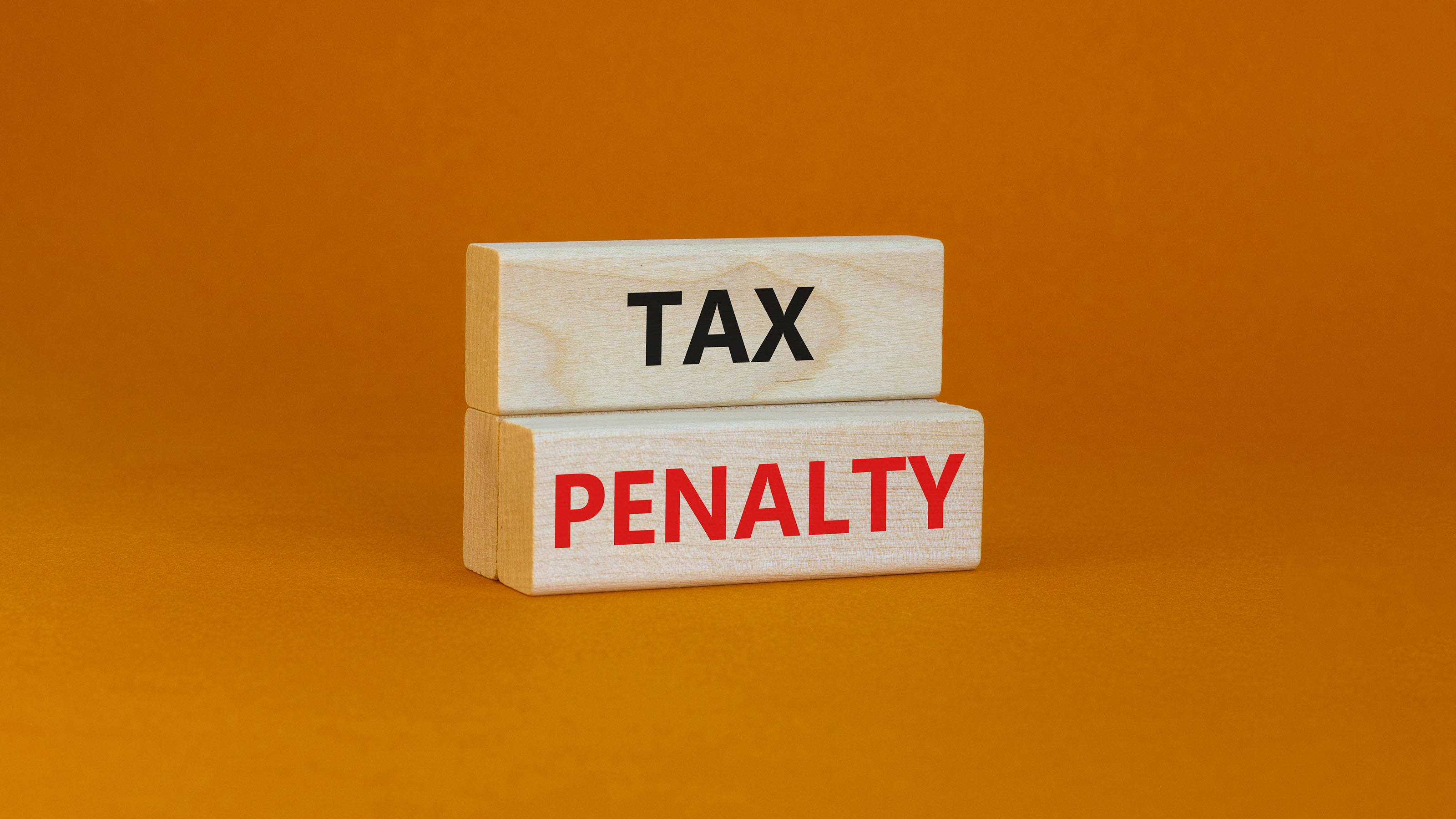Who's Not Eligible For a Third Stimulus Check
Not everyone will get a third stimulus check. See if you're on the list of people who aren't eligible for a third-round payment.


Profit and prosper with the best of Kiplinger's advice on investing, taxes, retirement, personal finance and much more. Delivered daily. Enter your email in the box and click Sign Me Up.
You are now subscribed
Your newsletter sign-up was successful
Want to add more newsletters?

Delivered daily
Kiplinger Today
Profit and prosper with the best of Kiplinger's advice on investing, taxes, retirement, personal finance and much more delivered daily. Smart money moves start here.

Sent five days a week
Kiplinger A Step Ahead
Get practical help to make better financial decisions in your everyday life, from spending to savings on top deals.

Delivered daily
Kiplinger Closing Bell
Get today's biggest financial and investing headlines delivered to your inbox every day the U.S. stock market is open.

Sent twice a week
Kiplinger Adviser Intel
Financial pros across the country share best practices and fresh tactics to preserve and grow your wealth.

Delivered weekly
Kiplinger Tax Tips
Trim your federal and state tax bills with practical tax-planning and tax-cutting strategies.

Sent twice a week
Kiplinger Retirement Tips
Your twice-a-week guide to planning and enjoying a financially secure and richly rewarding retirement

Sent bimonthly.
Kiplinger Adviser Angle
Insights for advisers, wealth managers and other financial professionals.

Sent twice a week
Kiplinger Investing Weekly
Your twice-a-week roundup of promising stocks, funds, companies and industries you should consider, ones you should avoid, and why.

Sent weekly for six weeks
Kiplinger Invest for Retirement
Your step-by-step six-part series on how to invest for retirement, from devising a successful strategy to exactly which investments to choose.
Millions of Americans have already received a third stimulus check (either by direct deposit or paper check). But if nothing has shown up in your bank account or mailbox yet, it might be because you're not eligible for a third payment. Some people may have gotten the impression that everyone is entitled to a third stimulus check. Unfortunately, that's just not the case.
There are a few reasons why you could be left without a third stimulus check. It could be because of your income, age, immigration status, or some other disqualifying factor. Here's a list of people who won't be getting a third stimulus check from Uncle Sam. Hopefully, you're not on the list and you'll get a nice payment soon — especially if you're one of the millions of Americans struggling financially because of the COVID-19 pandemic.
[Stay on top of all the new stimulus bill developments – Sign up for the Kiplinger Today E-Newsletter. It's FREE!]

High-Earners
Third-round stimulus checks start at $1,400 per eligible person ($2,800 for married couples who file a joint tax return). If you have any dependent, there'll be an extra $1,400 tacked on for each one of them. So, for example, a married couple with two dependent children can get up to $5,600. (Use our Third Stimulus Check Calculator to figure out how much you will get.)
However, third stimulus checks are quickly phased-out for people at certain income levels (based on your 2019 or 2020 tax return). If your income is high enough, your check will be completely phased out and you'll get nothing! For single people, that happens if your adjusted gross income (AGI) is above $80,000. If you're married and file a joint tax return, you'll get nothing if your AGI exceeds $160,000. If you claim the head-of-household filing status on your tax return, your payment will be reduced to zero if your AGI tops $120,000.

Dependents
If you're claimed as a dependent on someone else's tax return, you won't receive a stimulus check. That means no payments to children living at home who are 17 or 18 years old, or to college students who are 23 or younger at the end of the year who don't pay at least half of their own expenses.
Other dependents won't receive stimulus payments, either. For example, an elderly parent living with an adult child is out of luck and won't get a check.
However, if you're a dependent, at least the person claiming you as a dependent on their tax return will get an extra $1,400 added to their third stimulus check. Maybe, if you're nice, they'll give you some of that money.

Nonresident Aliens
A person who is a nonresident alien is not eligible for a third stimulus check. Generally, a "nonresident alien" is not a U.S. citizen, doesn't have a green card, and is not physically present in the U.S. for the required amount of time.
See IRS Publication 519 for more information on the taxes for nonresident aliens.

People Without a Social Security Number
Generally, you must have a Social Security number to get a stimulus check. To get the extra $1,400 for a dependent, the dependent must also have a Social Security number. If they don't, then you probably won't get the addition amount.
There are, however, a few exceptions to this rule. First, an adopted child can have an adoption taxpayer identification number (ATIN) instead of a Social Security number. Second, for married members of the U.S. armed forces, only one spouse needs to have a Social Security number. And, third, if your spouse doesn't have a Social Security number, you can still receive a third stimulus check, including any extra money for dependents, if you have a Social Security number.

Deceased People
It may seem obvious that a deceased person isn't eligible for a third stimulus payment. However, only people who died before 2021 are ineligible. Essentially, they're treated as if they don't have a Social Security number. However, if a person who died before 2021 was a member of the U.S. military, his or her surviving spouse can still receive a third stimulus check even if the spouse doesn't have a Social Security number. In addition, the extra $1,400 for each dependent is not available if the parent died before 2021 or, in the case of a joint return, both parents died before then.

People Who the IRS Doesn't Know About
The IRS will automatically send a third stimulus payment to people who filed a 2019 or 2020 federal income tax return. People who receive Social Security, Supplemental Security Income, Railroad Retirement benefits, or veterans benefits will receive a third payment automatically, too. However, if the IRS can't get the information it needs from your tax records, or from the Social Security Administration, Railroad Retirement Board, or Veterans Administration, then it can't send you a check.
However, if you don't get a third stimulus check now, you won't lose out on the money if you're eligible for a payment — but you'll have to wait until next year to get it. You'll be able to claim the proper amount as a Recovery Rebate tax credit when you file your 2021 tax return, which is due by April 18, 2022 (April 19 for residents of Maine and Massachusetts).

Stay on Top of Stimulus Check Developments
Follow Kiplinger for the latest news and insights on federal stimulus payments (and other important personal-finance matters). Stay with us on:
- email. Sign up free for our daily Kiplinger Today e-newsletter.
- social media. Follow us on Instagram, Twitter and Facebook.
- podcasts. Subscribe free to our weekly Your Money's Worth podcast. Apple | Google Podcasts | Spotify | Overcast
See some of our other coverage of the third stimulus check:
- Your Third Stimulus Check: How Much? When? And Other FAQs
- Third Stimulus Check Calculator
- 8 Reasons Why Your Third Stimulus Check Could Be Delayed or Denied
- Supplemental "Plus-Up" Payments Are On the Way
- Is Your Stimulus Check Taxable?
- Will Your Stimulus Check Increase Your Tax on Social Security Benefits?
- Where's My Stimulus Check? Use the IRS's "Get My Payment" Portal to Get an Answer
- 6 Money-Smart Ways to Spend Your Third Stimulus Check
- Where Can I Cash My Stimulus Check?
- Who Should Return Their Third Stimulus Check to the IRS?
Profit and prosper with the best of Kiplinger's advice on investing, taxes, retirement, personal finance and much more. Delivered daily. Enter your email in the box and click Sign Me Up.
Rocky Mengle was a Senior Tax Editor for Kiplinger from October 2018 to January 2023 with more than 20 years of experience covering federal and state tax developments. Before coming to Kiplinger, Rocky worked for Wolters Kluwer Tax & Accounting, and Kleinrock Publishing, where he provided breaking news and guidance for CPAs, tax attorneys, and other tax professionals. He has also been quoted as an expert by USA Today, Forbes, U.S. News & World Report, Reuters, Accounting Today, and other media outlets. Rocky holds a law degree from the University of Connecticut and a B.A. in History from Salisbury University.
-
 Dow Leads in Mixed Session on Amgen Earnings: Stock Market Today
Dow Leads in Mixed Session on Amgen Earnings: Stock Market TodayThe rest of Wall Street struggled as Advanced Micro Devices earnings caused a chip-stock sell-off.
-
 How to Watch the 2026 Winter Olympics Without Overpaying
How to Watch the 2026 Winter Olympics Without OverpayingHere’s how to stream the 2026 Winter Olympics live, including low-cost viewing options, Peacock access and ways to catch your favorite athletes and events from anywhere.
-
 Here’s How to Stream the Super Bowl for Less
Here’s How to Stream the Super Bowl for LessWe'll show you the least expensive ways to stream football's biggest event.
-
 States That Tax Social Security Benefits in 2026
States That Tax Social Security Benefits in 2026Retirement Tax Not all retirees who live in states that tax Social Security benefits have to pay state income taxes. Will your benefits be taxed?
-
 Ten States with the Lowest Sales Tax in 2025
Ten States with the Lowest Sales Tax in 2025Sales Tax Living in one of the lowest sales tax states doesn't always mean you'll pay less.
-
 10 Least Tax-Friendly States for Middle-Class Families
10 Least Tax-Friendly States for Middle-Class FamiliesState Tax Here’s what living in one of the least tax-friendly states for middle-class families costs residents.
-
 Low-Tax States for 'Middle-Class' Families in 2026
Low-Tax States for 'Middle-Class' Families in 2026State Tax Here are the best states for families with middle incomes (due to low tax burdens).
-
 15 States That Tax Military Retirement Pay (and Other States That Don't)
15 States That Tax Military Retirement Pay (and Other States That Don't)retirement Taxes on military retirement pay vary from state-to-state. How generous is your state when it comes to helping retired veterans at tax time?
-
 5 Tax Deadlines for October 17
5 Tax Deadlines for October 17tax deadline Many taxpayers know that October 17 is the due date for filing an extended tax return, but there are other tax deadlines on this date.
-
 Penalties for Filing Your Tax Return Late
Penalties for Filing Your Tax Return Latetax deadline Stiff penalties await those who didn't file their return (or pay any tax owed) by the tax filing deadline.
-
 9 Tax Deadlines for April 18
9 Tax Deadlines for April 18tax deadline Between requesting a tax extension, making IRA or HSA contributions, and meeting other tax deadlines, there's more to do on Tax Day than just filing your federal income tax return.

